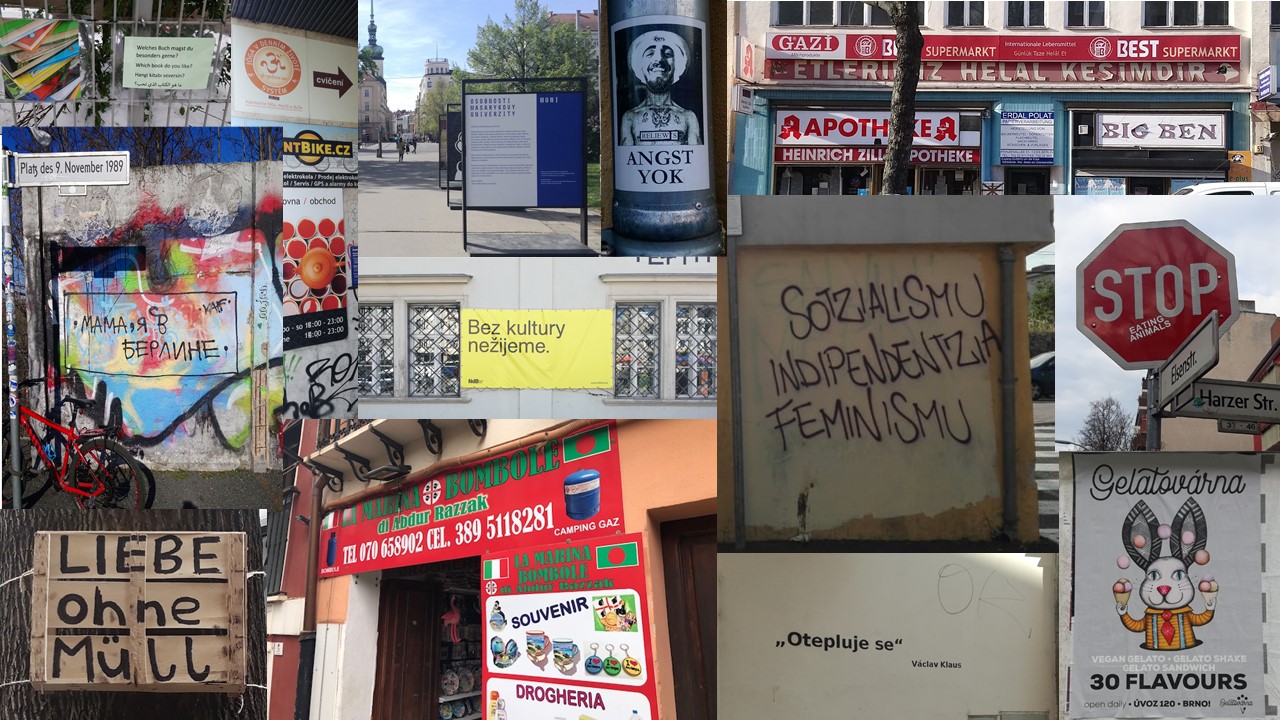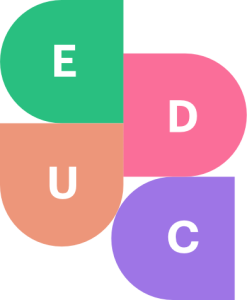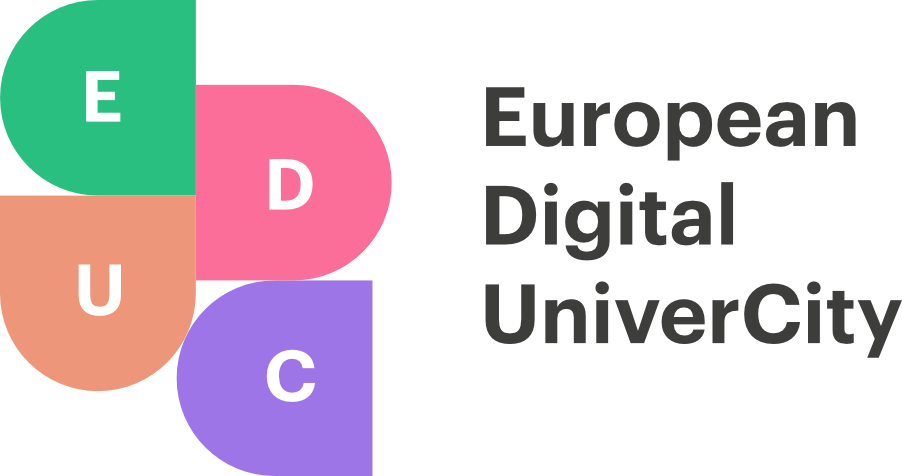- Teacher: Anna Rurka

Learning objectives
The public space of metropolises as well as medium and small-sized towns is profoundly marked by the historic and contemporary traces of linguistic practices, such as graffiti, informal messages, public and commercial signs. These signs are produced by different actors and also carry out different functions. Linguistic Landscape (LL) research investigates the distribution of monolingual and multilingual signs in the public sphere, their linguistic and semiotic features, as well as their functions and evolution over time. In doing so, it aims to provide insights into the status of historic and migration-related minority languages in a specific territory.
In this web-based training, students will be introduced to the main theoretical approaches and empirical methods for mapping linguistic diversity in public spaces. Particular attention is dedicated to an overview of the current state of LL research in three EDUC areas, that is, Brandenburg and Berlin, Brno and Czech Republic, Cagliari and Sardinia.
At the end of the web-based training, participants will:
- be able to describe the complex present and past sociolinguistic situations in Berlin and Brandenburg, Brno and Prague, Cagliari and Sardinia.
- become familiar with the current state of research on LLs in these three areas and develop awareness about the distribution of LL signs in their own territory.
- be able to discuss advantages and disadvantages of some theoretical-methodological approaches concerning data collection and analysis in LL.
- be able to analyze monolingual and multilingual LL signs, describe their functions and link their features to the status of different minority languages and the language ideologies toward them in a given territory.
- be able to evaluate and defend responses to a range of linguistic landscape issues.
Details of the learning scenario
The web-based training is an asynchronous learning offer, which means that students can access it on the platform EDUC Moodle at any time and complete it on their own schedule.
In concrete terms, the web-based training consists of three teaching units, jointly co-designed by teachers from the universities of Potsdam, Masaryk and Cagliari. Each unit includes slide-casts (spoken word and slides in English or in Italian with English subtitles) and e-exercises to practice the introduced concepts. At the end of each unit, recommendations for further readings are provided.
Please consider a total work-load of about 5 hours for the slide-casts (+ approximately 30 minutes to complete the e-exercises)
The minimum technical requirement you need to participate is a computer with internet access.
Schedule/Timetable of the learning offer
The web-based training is a continuous course that can be completed at any time on the platform EDUC Moodle.
- Teacher: Emma Pavan


